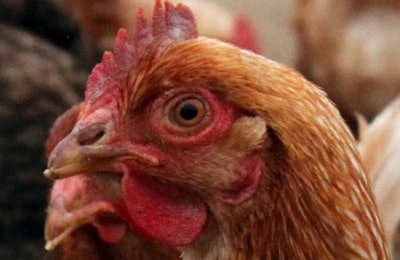
A new cage-free egg production farm jointly owned by the two largest egg companies in the United States should be fully stocked with hens by early 2017, an official with Cal-Maine Foods said.
Tim Dawson, Cal-Maine Foods’ vice president and chief financial officer, gave an update on the company’s joint project with Rose Acre Farms while speaking at the UBS Global Consumer Conference on March 10 in Boston, Massachusetts. When fully operational, the facility will have about 1.8 million birds, said Dawson.
“We’re in the process now of beginning to populate that facility. We have a little less than a half-million birds there today and should be at full capacity there by early 2017,” Dawson said.
Cal-Maine Foods and Rose Acre Farms in April 2015 announced that the companies had formed a joint venture known as Red River Valley Egg Farm LLC, and would be building a cage-free egg facility near Bogata, Texas, in Red River County.
The cage-free farm is being built at a time when major grocery chains like Aldi, Kroger, Delhaize America and Albertsons Companies are phasing out eggs from caged hens. Numerous chain restaurants, such as McDonald’s, IHOP, Denny’s and Burger King are also making the transition to cage-free eggs.
When the Red River Valley Egg Farm facility becomes fully operational, it will be a significant expansion to the two major egg companies.
According to the Egg Industry exclusive survey of top egg companies, Cal-Maine Foods’ operations included 36.38 million laying hens in 2015, while Rose Acre arms housed 25.59 million hens.


















